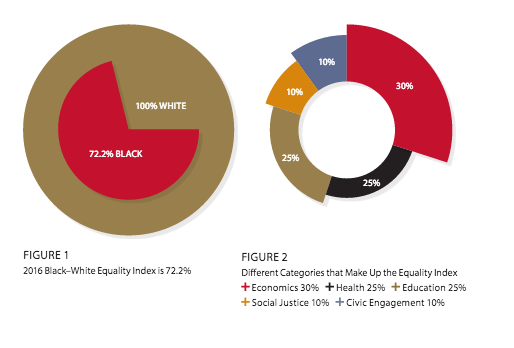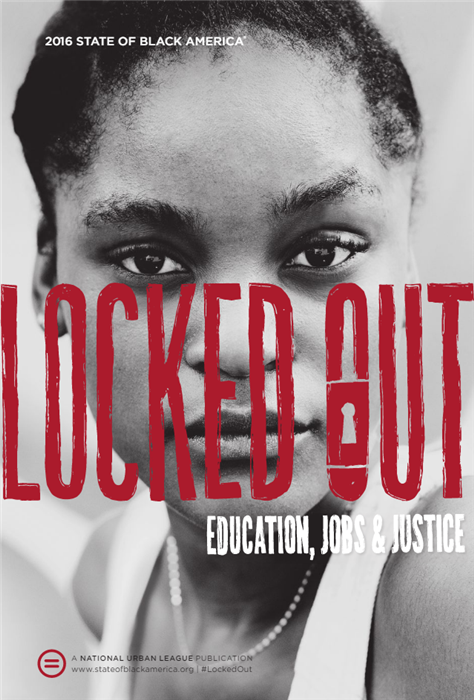As the National Urban League’s annual publication, the State of Black America serves as a source for immense insight into the racial equality, or lack thereof, that Blacks face within the areas of economics, social justice, education, and health.
Now in its 40th edition, the report reveals just how far black America has come within the past four decades, and in the same instance, how much further it has to go.
“The similarities of the United States of 1976 and the United States of 2016 are profoundly striking,” said Marc Morial, the president and chief executive of the National Urban League. “We are now, as we were then, a nation struggling to overcome the worst economic downturn since the Great Depression. All gears have been thrown into reverse.”
One of the most profound findings in this year’s report was the equality index of African-Americans stands at just 72.2 percent compared to the 100 percent white benchmark. This marks a slight improvement in the quality of Black life compared to 2015’s 72.0 percent
The area that showed significant improvement this year was that of education, which demonstrated an increase from 76.1 percent to 77.4 percent. Social justice also saw an increase which went from 60.6 percent to 60.8 percent–an increase partly due to the decline in the incarceration of Blacks.
Telling decreases, however, were seen in categories such as civic engagement with a drop from 104 percent to 100.6 percent due to lower voter registration. The report’s health index also showed a drop from 79.6 percent to 79.4 percent.
“The 2016 National Urban League Equality Index tells an all too familiar story of persistent racial disparities in American life,” Morial wrote in the report, “making clear that the historic Obama presidency has not been a panacea for America’s long-standing race problem. “
Providing suggestions for improvement, the report called for a “bold and strategic investment” in America’s urban communities that would require $1 trillion over the span of the next 5 years.
Recommendations included investments in early childhood education, the expansion of summer youth employment programs and doubling the Pell Grant program as a means of making college more affordable.
“Vernon Jordan realized in 1976 that it was incumbent upon the National Urban League to confront the problems that Washington refused to acknowledge,” Morial conitnued in the report. “Forty years later, we continue on that path to progress – with a clear purpose and an even clearer plan.”
